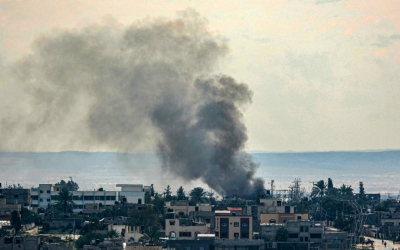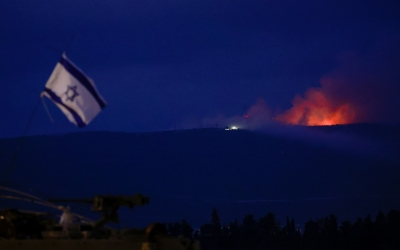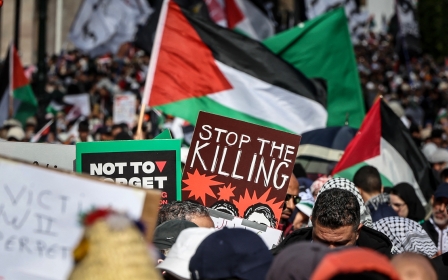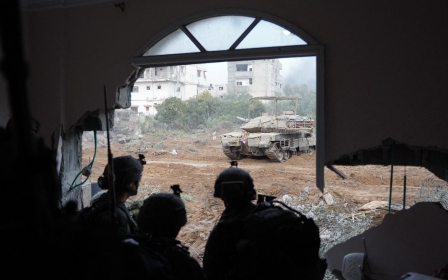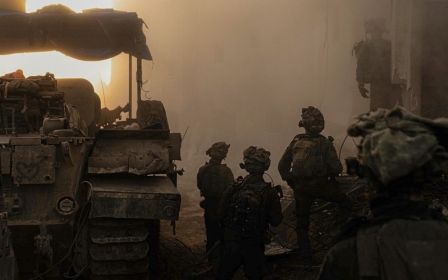War on Gaza: Forced out at gunpoint, Palestinians in hospital besieged by Israel have nowhere to go
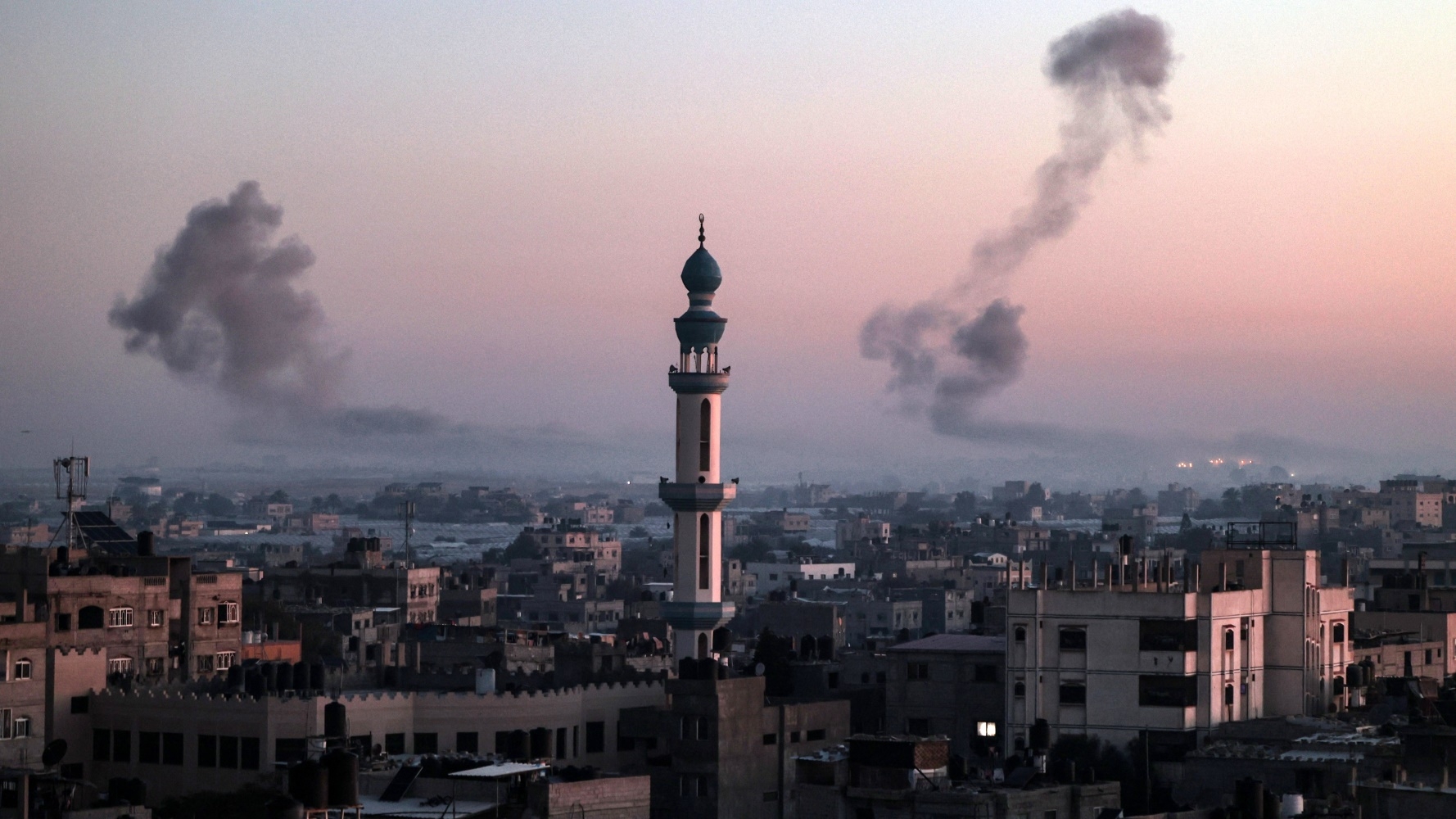
Israel is forcibly removing Palestinians from a hospital in Khan Younis in southern Gaza at gunpoint, according to local media outlets and Middle East Eye's sources in the area.
Eyewitnesses say the area around Nasser Hospital, where thousands of Palestinians have sought refuge, is strewn with the bodies of people who had tried to escape Israeli attacks on the facility.
Israel says that the hospital is housing Hamas fighters, a claim it has regularly made when attacking hospitals in Gaza despite not having produced any evidence of a significant military presence inside them.
The Israeli siege of Nasser Hospital follows the same modus operandi as that of other besieged hospitals in Gaza, including, most notoriously, the Al-Shifa hospital in Gaza City, where Israeli officials falsely claimed a Hamas command and control centre was situated.
Dr Khaled Asreer, one of the last remaining surgeons in Nasser Hospital, told Middle East Eye that he had seen three Palestinians killed at the northern gate of the hospital and that others were made to walk through an Israeli cordon of tanks and soldiers.
“Crowds are now standing in front of the gates and the Israeli army are forcing them to move about two kilometres to reach a safety zone," he said.
“The Israeli instructions were strict and they said that every patient who is able to move has to evacuate immediately.
“The only exception is for patients who are unable to walk or move. Even patients with wheelchairs are unable to move because in front of the gates - due to bulldozer activity [in the] last two days - there is no hard surface for the wheelchair to move on. It’s all sand.”
Footage shared by the Quds News Network showed throngs of Palestinians making their way out of the hospital.
Al Jazeera journalist Hani Mahmoud in Rafah, southern Gaza, said that facial recognition cameras were being used on those leaving.
The people fleeing the hospital have already been displaced, sometimes on multiple occasions, since the war began in October.
With much of Gaza's civilian infrastructure destroyed, these Palestinians have nowhere left to go.
Israel's military has alleged without evidence that “Hamas continues to conduct military activities” in Nasser Hospital and “the place was used to hold hostages”.
It made similar unproven claims preceding its assault on Al-Shifa.
Israeli Prime Minister Benjamin Netanyahu has declared his intention to make the southern Gaza city of Rafah the next focus of his devastating campaign, which has so far killed more than 28,000 people, nearly half of them children.
While Washington remains a steadfast supporter of Israel's military campaign, which the ICJ has determined could plausibly amount to genocide, other western states are openly critical of the Israeli conduct.
Ireland and Spain on Wednesday requested that the EU Commission "urgently review whether Israel is complying with its obligations to respect human rights".
Lebanon attacks
Elsewhere, tensions have also escalated in southern Lebanon's border with Israel, with no let up in attacks by Hezbollah and other armed groups on Israeli positions and Israeli air strikes within Lebanon.
At least one Israeli soldier was killed earlier on Wednesday and eight others were wounded in rocket strikes that Israel says came from southern Lebanon. Hezbollah has yet to claim responsibility.
Israeli military spokesperson, Daniel Hagari, says the Israeli air force launched “an extensive wave of attacks” on Lebanese territory.
The strikes killed four civilians, according to Lebanese outlet al-Mayadeen, including a woman and her two children, in the town of Souaneh.
Targets have included areas deep within Lebanon, far from its border with Israel.
Al-Manar news also reported that another person was killed in Adchit. Nine people were also wounded in the strikes.
Hezbollah and Israel have been engaged in low intensity fighting since 7 October, with neither side committing to a widescale military assault.
Officials on the Israeli side, however, have frequently threatened to launch an invasion of southern Lebanon.
Middle East Eye propose une couverture et une analyse indépendantes et incomparables du Moyen-Orient, de l’Afrique du Nord et d’autres régions du monde. Pour en savoir plus sur la reprise de ce contenu et les frais qui s’appliquent, veuillez remplir ce formulaire [en anglais]. Pour en savoir plus sur MEE, cliquez ici [en anglais].


